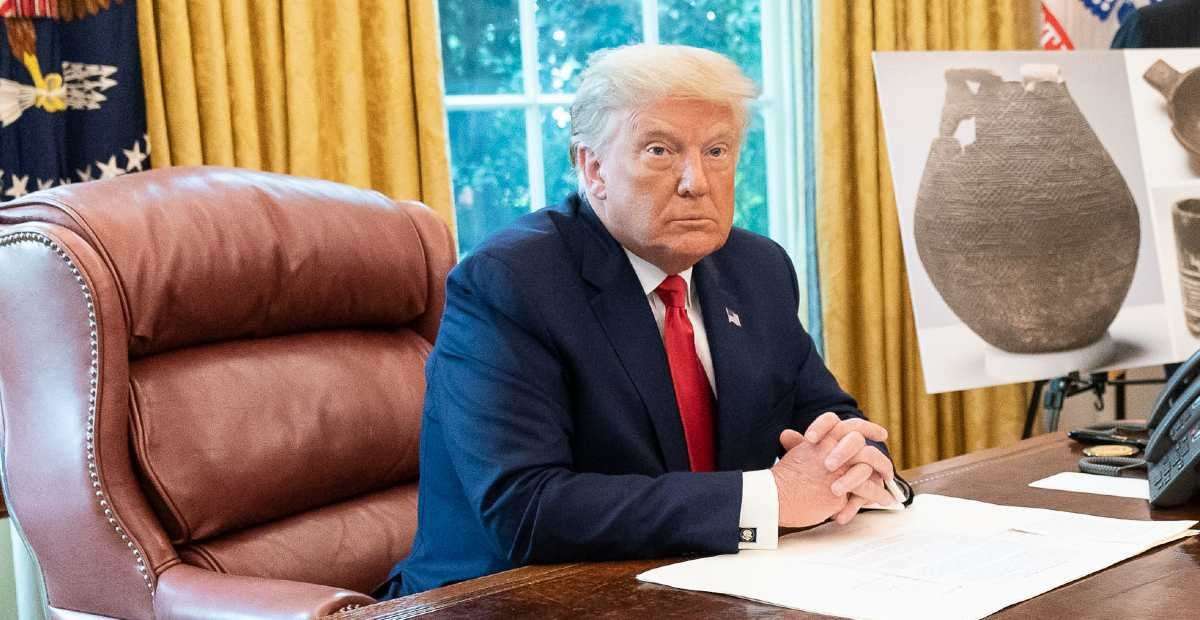A new study of President Trump’s tweets indicates that he’s been sleeping less and less. That lack of sleep is hurting his performance, and making him angrier.
The study, conducted by Columbia University researchers Douglas Almond and Xinming Du, analyzed the President’s tweets from January 24, 2017 to April 10, 2020.
The researchers used these tweets as a proxy for the President’s sleep duration. On a typical day, the President starts tweeting at around 6am. He continues to tweet about once every two to three hours throughout day, with an average of 10 tweets per day.
But, although President Trump still consistently wakes up at around 6am, the frequency of his Twitter activity between 11pm and 2am has increased 317% since 2017.
During the early days of his presidency, President Trump typically posted late-night tweets on average one evening per week. But by April of 2020, that had increased to about three nights per week.
Trump’s tweets show a man not sleeping enough
The US Centers for Disease Control and Prevention recommends that adults over age 65 sleep 7-8 hours per night. But on the three nights per week that the President tweets late at night, his average tweet time is 12:06 am.
This suggests, the researchers write, that when the President stays up late, he’s getting fewer than 6 hours of sleep per night, on average.
The study, titled “Later bedtimes predict President Trump’s performance,” found that this increase in late-night activity cannot be accounted for by the President’s travel schedule, nor by an increase in his overall tweeting activity.
Those wee-hour tweets are hurting his performance. The study finds that on the day following one of his late nights, the President’s Twitter followers interact less with his tweets: he gets 7,400 fewer likes per tweet, 1,300 fewer retweets, and 1,400 fewer replies, which figures equate to 6.5% – 8% fewer than average. As the researchers put it, after a late night he posts fewer “home run” tweets and more “non-resonant” ones.
Also, based on textual analysis of the President’s speeches and interviews, they find that the President Trump is less likely to be “happy” on the days after a late night, and nearly three times more likely to be “angry.”
Despite the President being happy in 88% of the transcripts, his late-tweeting nights and more late tweets appear to make him less happy the following day. The proportion of “happy” transcripts following a late night decreases almost 5%. Likewise, the proportion of angry transcripts increases by about 3% after a late night.
Trump’s tweets and election betting odds
Although this shift in President Trump’s tweets has not yet attracted much attention in the media, the betting markets have certainly taken notice. After one of President Trump’s late nights, the odds of his leading opponent winning the 2020 election consistently increased by 0.6%, based on data provided by odds-tracker BetData.
The authors say their study is the first they know of to use this data to argue that President Trump’s sleep duration has become noticeably shorter. “The pattern we document is consistent with a progressive shortening of the President’s sleep over his first term and compromised performance from sleep deprivation,” they write.
The President’s performance, after all, is “immensely important to others” given his role as the leader of the United Sates. “If the President’s sleep is sub-optimally short in 2020,” the authors write, “it can and should be addressed.”
Study: “Later bedtimes predict President Trump’s performance”
Authors: Douglas Almond and Xinming Du
Publication date: (journal pre-proof) September 25, 2020

patrickk1734 on October 1st, 2020 at 05:10 UTC »
I counted 31 tweets during the live debate I don’t think that’s him tweeting. Somehow he has hired someone who uses his exact same grammar
mean11while on October 1st, 2020 at 04:11 UTC »
Okay, I have an actual scientific criticism of this study. They assume a causal link between late-night tweeting and angry, non-resonant tweets the next day. But it seems just as plausible to me that he stays up when events are happening that make him angry. Those types of events tend to erode his standing/make him look bad, so this could also explain the decline in Twitter performance. In other words, they could easily just be correlated. As things have unraveled for him, he would be angry more, sleeping less, and getting less traction on social media.
knightro25 on October 1st, 2020 at 04:08 UTC »
But if someone runs his account, and the tweets are public record official statements, he could then deny he ever said anything on twitter, no?